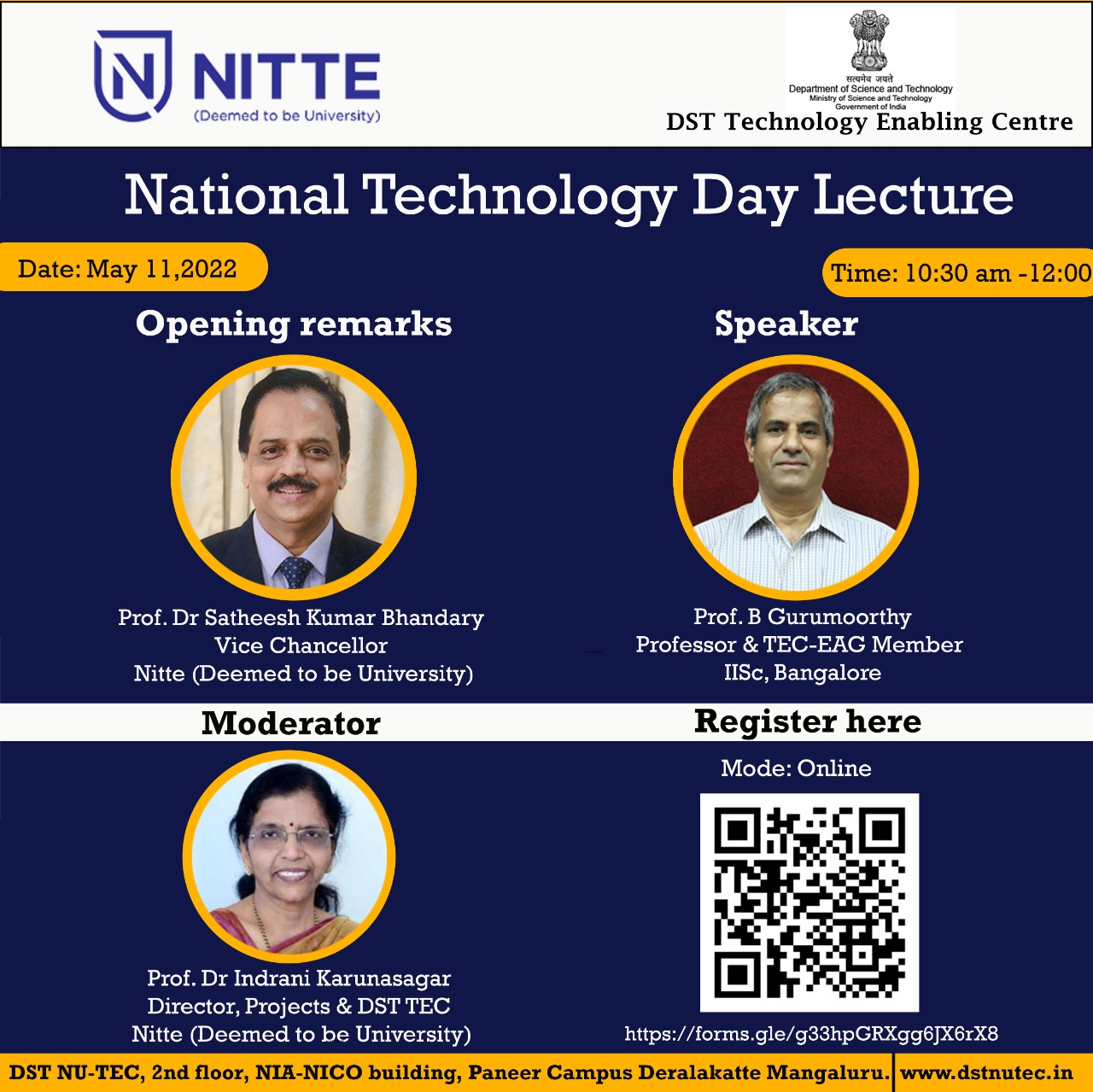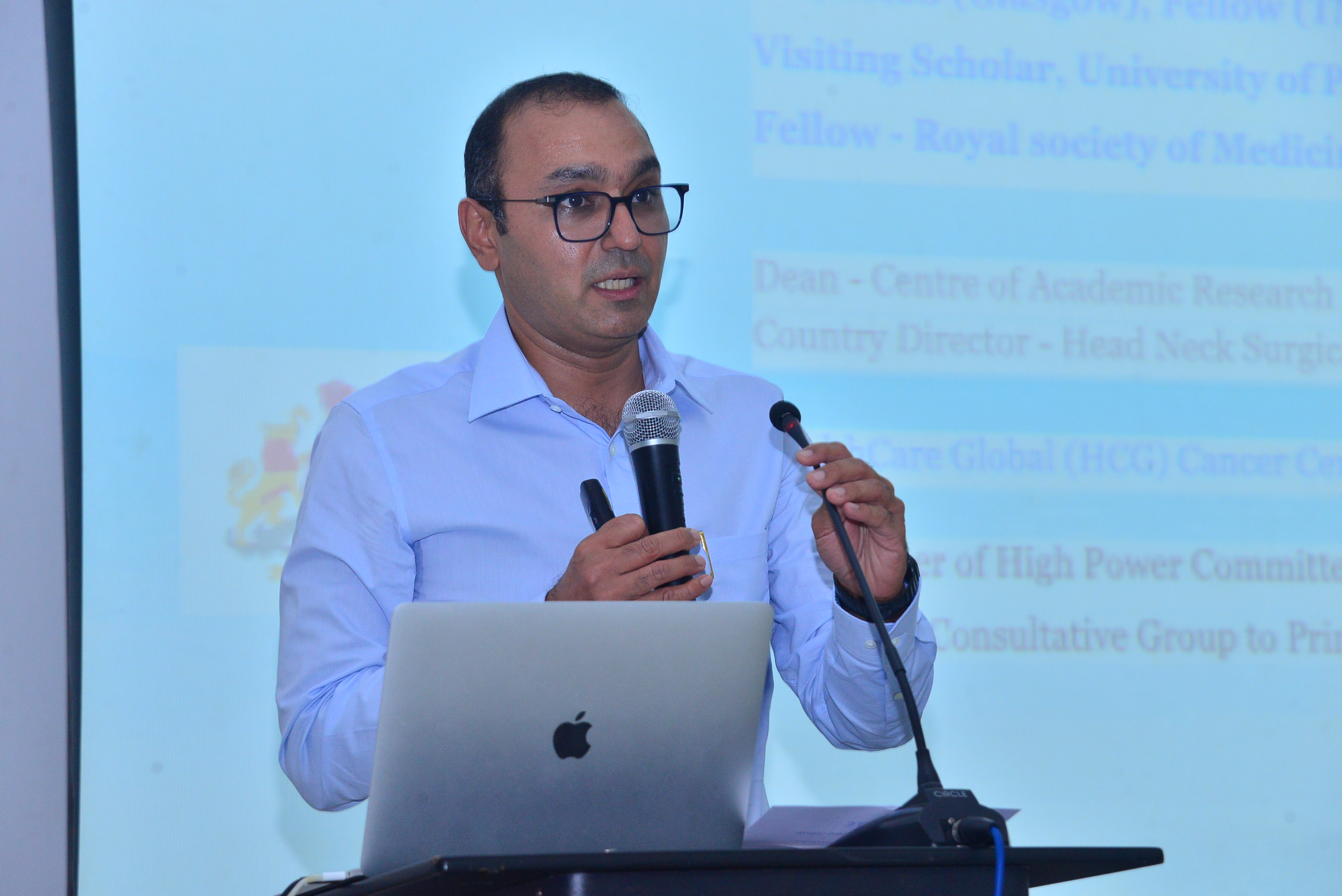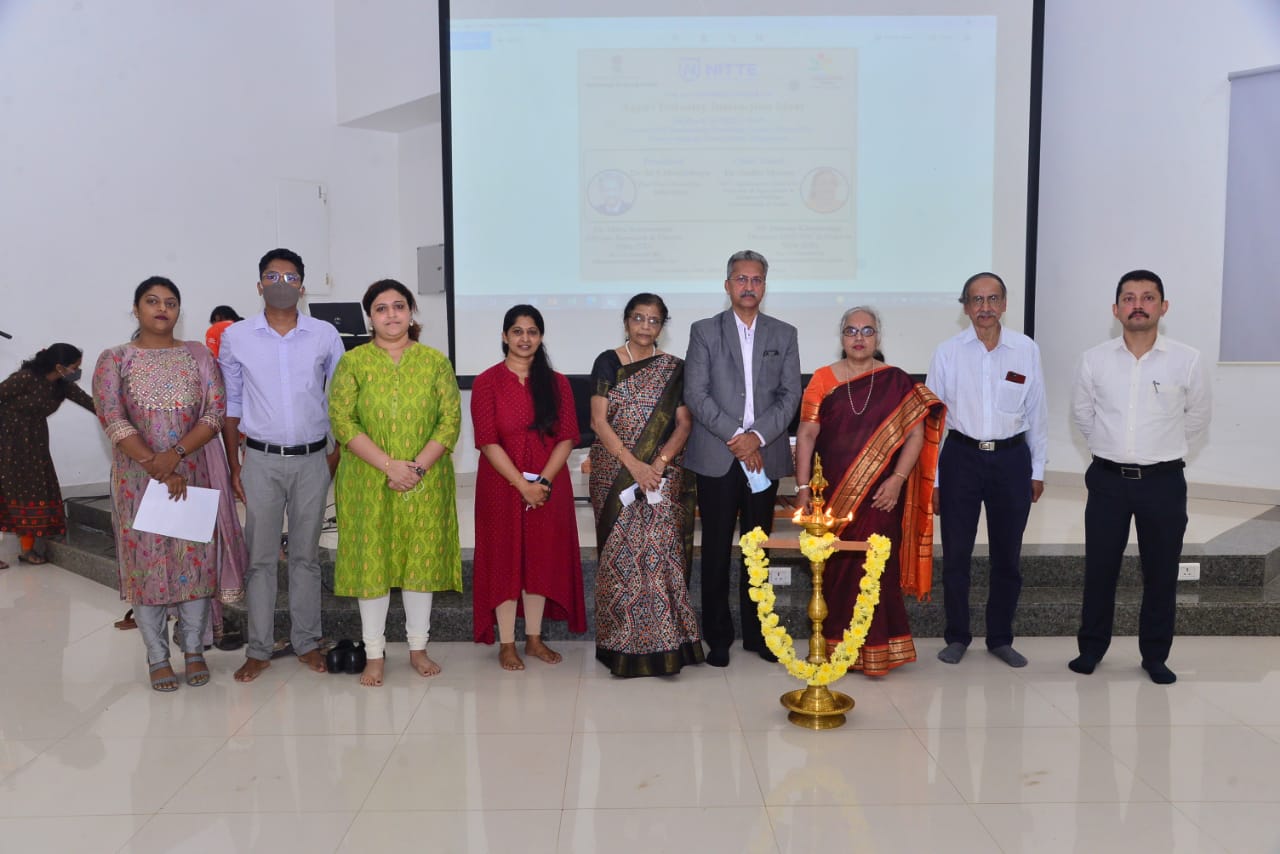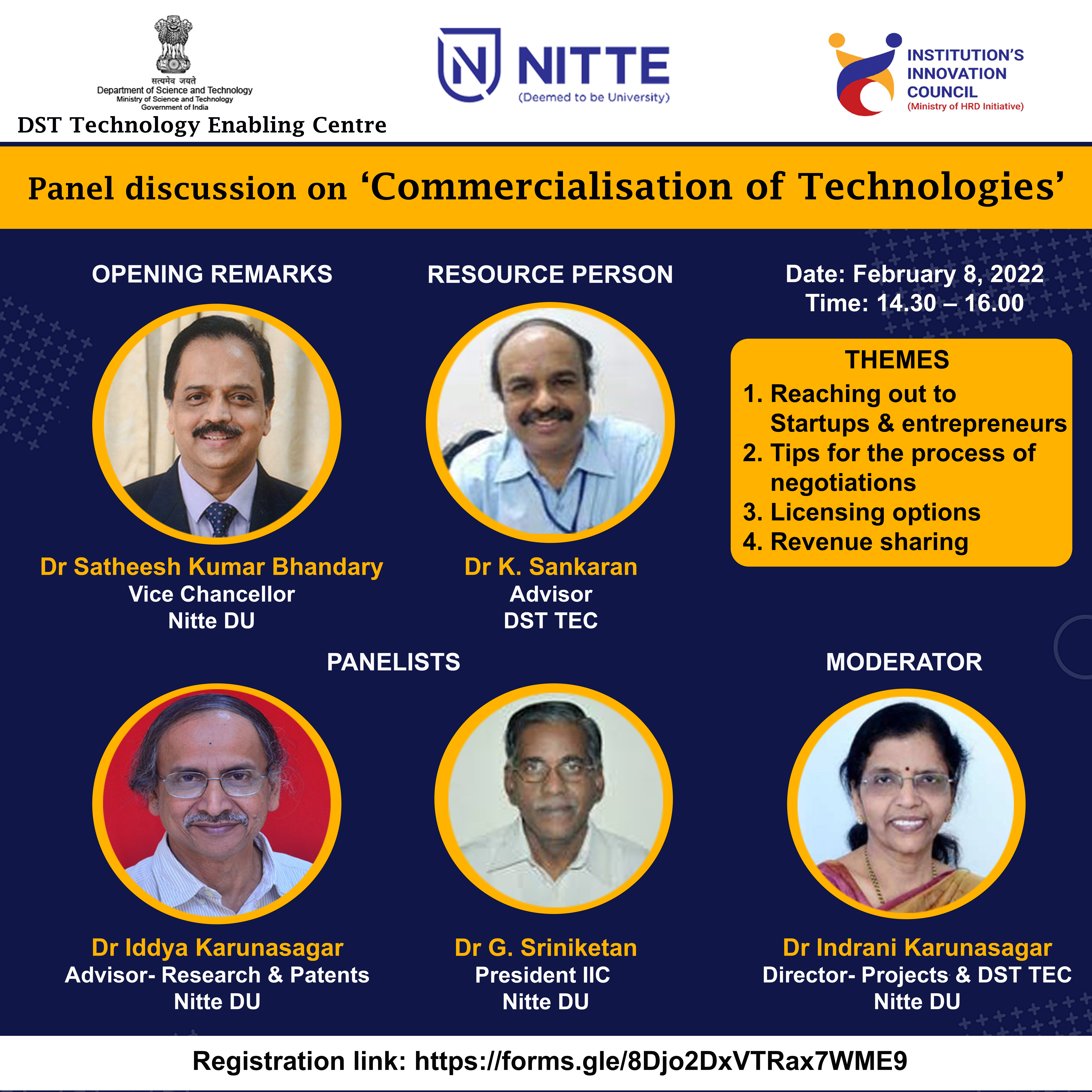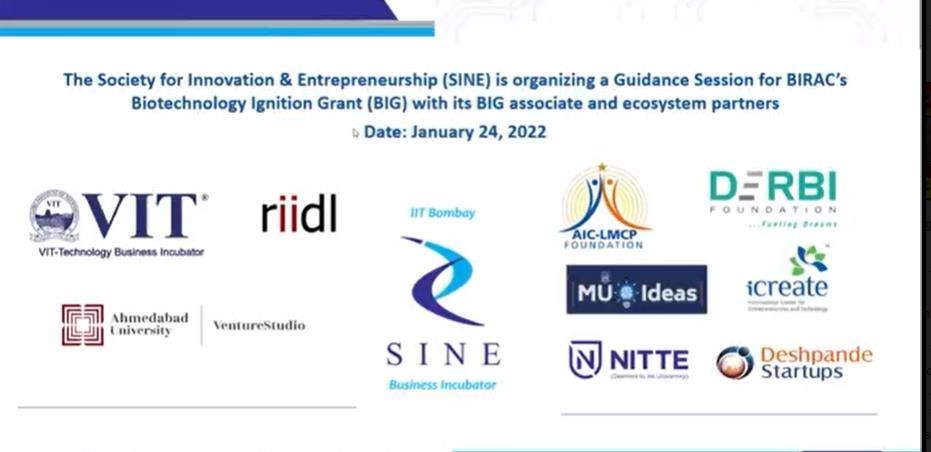World IPR Day Theme Lecture
Date : 2022-04-27
DST -Technology Enabling Centre, Nitte DU has been in the forefront of networking for inter and multi-disciplinary translational research. Social relevance has become the theme of every initiative that the government supports. In this regard, TEC and the Institute Innovation Council, Nitte DU organized World IPR Day Theme Lecture on 27 April 2022. Dr Vishal Rao, Director, Head and Neck Surgical Oncology, HCG Cancer Centre Bengaluru was the chief guest for the occasion. The programme began with the inspiring video covering the journey of Dr Vishal Rao in developing an indigenous cost-effective voice prosthesis that has helped throat and larynx cancer patients regain their speech post-surgery. The programme was presided by the Hon’ble Vice Chancellor Prof Dr Sathish Kumar Bhandary in the august presence of Dr Alka Kulkarni Registrar, Dr Sriniketan President IIC, Dr Iddya Karunasagar, Advisor Research and Patents, and Dr Indrani Karunasagar Director Projects and TEC. Dr Indrani Karunasagar welcomed the chief guest Dr Vishal Rao and the gathering followed by Dr Iddya Karunasagar who enlightened the audience on the theme of IPR day and explained the significance of bringing a celebrated clinician scientist for the event. Dr Satheesh Kumar Bhandary in his presidential address, emphasized on developing innovative technologies to help humankind. In the medical field, developing devices would be possible only through recognising problems of patients by clinicians just the way the affordable voice prosthesis was a result of Dr Vishal Rao’s inner call to help the needy who lost their voice during larynx surgery following cancer . In his talk titled “Possibility to Actuality”, Dr Vishal detailed his motivational journey and urged the audience to think differently on solving problems and not shy away from confronting issues with “out of the box” approach to solve problems. His inspirational talk left the audience spell bound and was a huge success that was followed by an interactive session with the active participation of faculty and students from various institutes of the district.
Last updated
2022-10-12 05:00:49
